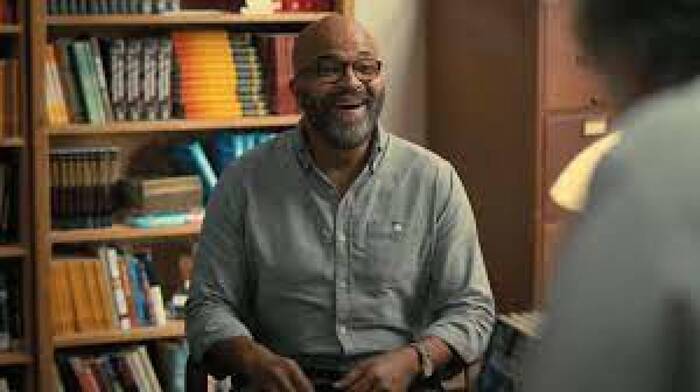Lawyer, Olivier Amiel is the author of See the worst.
Otherness in the work of Bret Easton Ellis
(Editions Les Presses Littéraires, 2021).
The release this week of the latest novel by Bret Easton Ellis (
Les Éclats,
by Robert Laffont) is an opportunity to find on the front of the stage an author who best represents this America – too rare – who says no to tyranny well- thinker of
cancel culture
.
On the occasion of his visit to Paris, the American author recalled all the evil he thinks of the epidemic of moral superiority of self-proclaimed progressives and their
"new editorial model"
giving pride of place to
sensitivity readers
, these proofreaders in publishing houses responsible for redacting texts through the prism of the sensitivity of those who are offended in any way – be careful, this happens in France...
Read alsoIs the “cancel culture” producing a generation of ignoramuses?
Bret Easton Ellis has often made fun of
cancel culture
, this militant and ideological practice consisting in wanting to "erase", therefore banishing, through censorship and boycott, a work or an artist who would offend a community claiming to be a minority, therefore victim, therefore untouchable like “baby pandas”.
It is the advent of what Philippe Muray prophesied in 1991 as
“the lynching under the mask of progressivism”
by
“the Empire of good”
.
This misunderstanding of the necessary irony of a satire has become more usual in our age, which hates nuance.
Olivier Amiel
It must be said that this same year 1991, Bret Easton Ellis was one of the first modern victims of this "cancel culture" movement with the release of his novel
American Psycho
, a brilliant and trying satire of the 80s describing in the smallest details the obsessions and the crimes of a psychopathic trader.
The writer has experienced a major campaign of calls for a boycott, the withdrawal of the book and even death threats from feminist associations in particular.
Its first publishing house will drop it in progress… Even if it will become the best-seller that we know.
The confusion between narrator and author which was already reproached in 1991 to Bret Easton Ellis has become commonplace among our new censors.
Asked in
Le Figaro
, the writer Giuliano da Empoli responds to his detractors who want to confuse him with his character from the novel
Le mage du Kremlin
(Gallimard):
"It's a bit like accusing Bret Easton Ellis of being a serial killer because he wrote
American Psycho
in the first person!
At the time some in the United States did it, but in France fortunately we are not there… ”
.
Read also“In the United States, the presidential election could be determined by the cleavage between “woke” and “anti-woke””
We are not there, but not that far.
This misunderstanding of the necessary irony of a satire has become more common in our age, which detests nuance.
Let us also imagine the mobilization of 1991 with today's digital tools and in particular social networks.
The pressure would have been even stronger, but above all, the current weakness of publishers submitting to proofreading so as not to offend any sensitivity would have led to self-censorship preventing the existence of a work as radical as American
Psycho
.
If the positioning of Bret Easton Ellis is too rare in the United States, we still notice an increasingly important movement against the "cancel culture" on the right but also within the influential American liberal left.
Olivier Amiel
Moreover, Bret Easton Ellis reminded this week in Paris, it would be impossible to publish this novel for the first time today.
This does not prevent him from considering in the same intervention that an author who would submit to this censorship would be
“a wimp”
.
A little like the Spaniard Javier Cercas for whom
“a timorous writer is like a fearful bullfighter: he has chosen the wrong job”
.
If the position of Bret Easton Ellis is too rare in the United States, we still notice an increasingly important movement against the "cancel culture" on the right but also within the influential American liberal left (which Ellis calls it
“his side of the church aisle
,” who initially championed the movement in academia and the media for fear of being on the wrong side of history before he was. itself a victim because it is well known:
"The Revolution is like Saturn: it devours its own children"
.
A lesson that the French left, omnipotent in the literary and cultural field, should remember.



/cloudfront-eu-central-1.images.arcpublishing.com/prisa/V22MUF36WRCMFMYVPT2JTWATUU.jpg)











